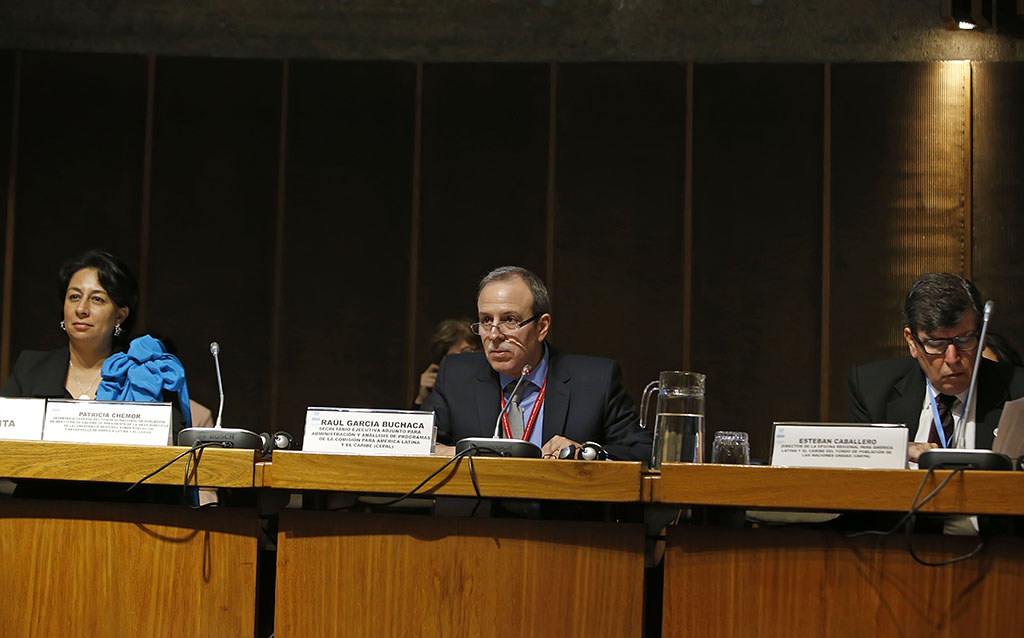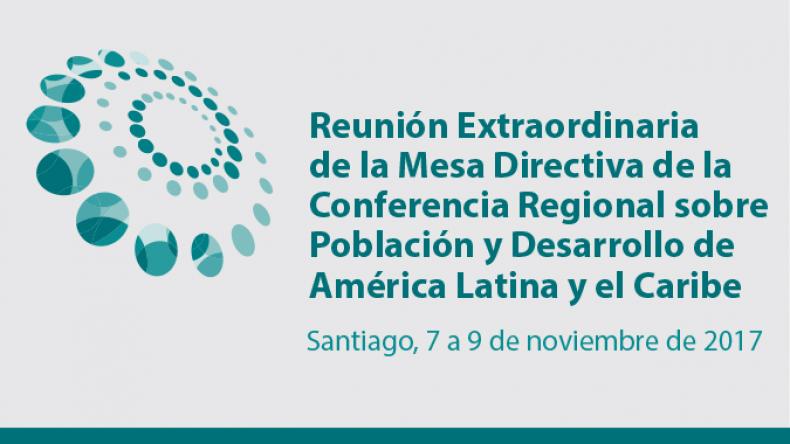Despite Advances, Lags and Gaps Threaten Progress on Population and Development Issues in the Region
Work area(s)
The Special Meeting of the Presiding Officers of the Regional Conference on Population and Development was inaugurated today at ECLAC’s headquarters in Santiago, Chile.

The region of Latin America and the Caribbean has made progress on implementing measures regarding population and development, but some lags and gaps may undermine the solidity of these advances, representatives of countries in the region agreed today while gathered at the Special Meeting of the Presiding Officers of the Regional Conference on Population and Development.
Along with Mexico in the Presidency, the Presiding Officers of the Regional Conference is comprised of Argentina, Brazil, Colombia, Costa Rica, Cuba, the Dominican Republic, Ecuador, El Salvador, Guyana, Honduras, Jamaica, Paraguay, Puerto Rico, Uruguay and Venezuela.
The meeting, which will be held through Thursday, November 9 at the headquarters of the Economic Commission for Latin America and the Caribbean (ECLAC), was inaugurated by Raúl García-Buchaca, ECLAC’s Deputy Executive Secretary for Management and Program Analysis; Patricia Chemor, Secretary General of Mexico’s National Population Council (CONAPO), in her role as President of the Presiding Officers of the Regional Conference; and Esteban Caballero, Director of the United Nations Population Fund (UNFPA) Regional Office.
In his opening remarks, Raúl García-Buchaca affirmed that a preliminary overview of the four years of implementation of the Montevideo Consensus on Population and Development indicates that Latin America and the Caribbean has made progress on comprehending and acting upon some issues, such as the institutional framework for population matters, civil society participation, sexual and reproductive rights, and the need for indicators and statistical data to examine the gains made.
However, he said that in 2015, a little over one-third of the regional population – or 145.6 million people forming part of 39.2 million households – experienced social exclusion.
“The likely weakening of social protection systems due to the reduction in public budgets earmarked for social development that some countries in the region are experiencing would only serve to deepen these disadvantages,” the senior ECLAC official warned.
In the same vein, Patricia Chemor called on the region to maintain its global leadership on matters of population and development and said that, given the complexity of national challenges, joint and coordinated work is the only viable way to continue forging ahead on implementation of the Montevideo Consensus.
This document – adopted at the first meeting of the Conference, held in 2013 in Uruguay – is the region’s most important intergovernmental agreement on population and development.
Esteban Caballero, meanwhile, underscored that the 2030 Agenda and the Montevideo Consensus call for duly integrating the economic, social and environmental spheres.
“For such a mission, the important thing is to address the issue from a population perspective, asking the question: Who is being left behind in development processes?” he sustained.
During the opening session, officials presented the Final Report of the Ad Hoc Working Group charged with preparing a proposal on the indicators for regional follow-up of the Montevideo Consensus.
The proposal by the ad hoc group, made up of experts from 17 countries in the region, is aimed at providing an indicator framework for drafting the regional report for follow-up of the Montevideo Consensus, supporting countries in the preparation of their national reports, and facilitating and promoting synergies and complementarity with other agendas, in particular with the 2030 Agenda for Sustainable Development.
The proposal includes a total of 140 indicators, 44 of them new, which address issues such as the population’s integration in sustainable development and the areas of childhood, adolescence and youth, aging, sexual and reproductive health, gender equality, internal and international migration, territorial inequality, and indigenous and Afro-descendant peoples.
Related event
Related content

Countries of the Region Will Evaluate Progress and Challenges to Implementing Measures on Population and Development
The Special Meeting of the Presiding Officers of the Regional Conference on Population and Development will be held at ECLAC’s headquarters in Santiago, Chile on November 7-9, 2017.
Related link(s)
Country(ies)
- Latin America and the Caribbean
Contact
Public Information Unit
- prensa@cepal.org
- (56 2) 2210 2040

